Description
Tanzania peaberries are considered an East Africa classic and are constantly in high demand. Many of them, however, tend to trade on an outsize reputation and with less than perfect traceability. Nonetheless there certainly are exceptions, such as this coffee: a single-estate peaberry lot from the Vohora siblings, part of an outstanding, multi-generational family who take climate preservation and quality equally seriously.
Tasting Notes: Rich and chocolaty, Tanz coffee is always high on our go to list for stronger chocolaty darker roast coffee. At the medium roasts one will see a more gentle cup with good body, a little sweeter edge, hints of acidity and stronger chocolaty spice. Darker roasts get much fuller bodied and bring out the very strong bakers chocolate edge balancing nicely with classic African spice note and complimenting roasty/smoky tones.
Roasting Notes: A very versatile coffee and easy to roast. We would avoid the cinnamon roast level (super light) but anything past that will be tasty. Lighter roasts will have some acidity but provide nice clean cups. Darker roasts work very nicely as well, smooth, strong with chocolate, spice, smoke in the cup profile.
Edelweiss Estate
Edelweiss Estate is a 400-hectare coffee plantation in the Karatu district of Tanzania. The estate is technically comprised of two conjoined farms—Edelweiss and Gaia Farm—and is owned and managed by Neel and Kavita Vohora, siblings, multi-generation coffee growers, and agricultural entrepreneurs in this extremely unique part of East Africa. Both farms are cultivated along the rim of the Ngorongoro Crater, the largest unbroken caldera in the world and a breathtakingly scenic landscape of escarpments and fertile open range that has been a UNESCO World Heritage site since 1979.
Of the 400 hectares that comprise Edelweiss Estate, 260 are planted with coffee. These planted hectares are sub-divided into 50 blocs by microclimate or coffee variety, allowing the Vohoras and their harvest staff of 650 to manage each specific need of the farm in an orderly way. Neel and Kavita have been steady suppliers for Royal for a few years, and beyond the ever-in-demand peaberries that have become synonymous with Tanzania specialty, the brother and sister have put their size and expertise to use introducing a dizzying variation of processing styles into the world. Some of which we are also lucky to cup and carry each year.
The Vohora Family & Ngorongoro
Since 1971, the Vohoras have owned about 1000 hectares of farmland on the southern exterior slopes of the Ngorongoro caldera near the town of Karatu in Tanzania’s lush rift valley. The Vohora farms possess Rainforest Alliance certificate, and the family and their 50+ full-time employees (and 1500 seasonal workers) on the farm have done a remarkable job of upkeep and preservation of natural beauty while also running a thriving coffee business. They are diversifying into macadamia and honey, provide temporary housing for harvest labor, and even supply land on the farm for local smallholders to grow beans – a mutually beneficial crop as the legumes fix nitrogen in the soil, a critical step in a healthy cycle of crops.
Tanzania’s commercial coffee production began under colonial control of European nations. The farms’ names are testament to the German influence of the late 1800s, but it was the British who encouraged large-scale productivity in the 1920s. Edelweiss Farm and the two farms comprising Finagro were transferred to the administration of one B.N. Vohora, an Indian farm manager, who would later buy the farm at an auction. His son Ajai runs the family business now from Nairobi. Ajai’s own children, Neel and Kavita, are the day-to-day managers and innovators on the ground in Tanzania keeping the farm alive and prosperous. Kavita manages the dry mill and warehouse in Arusha, while Neel aids with the management of the farms and wet mills.
Today, Neel and Kavita are third-generation Tanzanians, and their family has been in the Tanzanian coffee business since the end of the second World War. The family export business based in Arusha has more than 60 years’ experience in the country.
Edelweiss Estate, to us, is a coffee paradise. Natural forest canopy shades the trees over the combined 400 hectares of land, more than half of which is left to natural forest. There are reservoirs and a dam allowing efficient irrigation and conservation of water. Growing mainly Kent (a Bourbon variety first cultivated in India) along with newly maturing SL-28s and SL-34s, and other newer Kenyan cultivars, the clear focus is quality, and it’s exhilarating to see the attention and dedication of two young farmers who are clearly resolved to make the most of their very special corner of the planet.
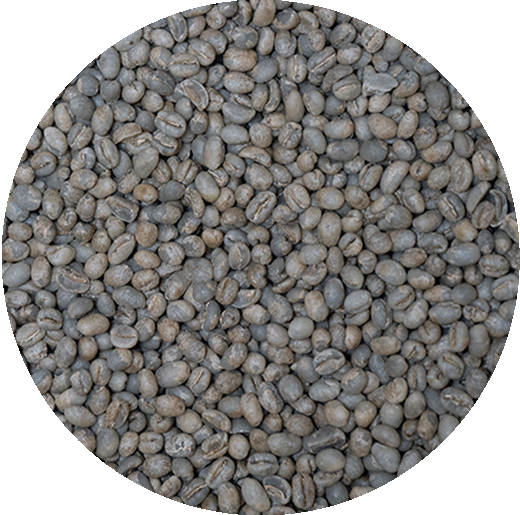
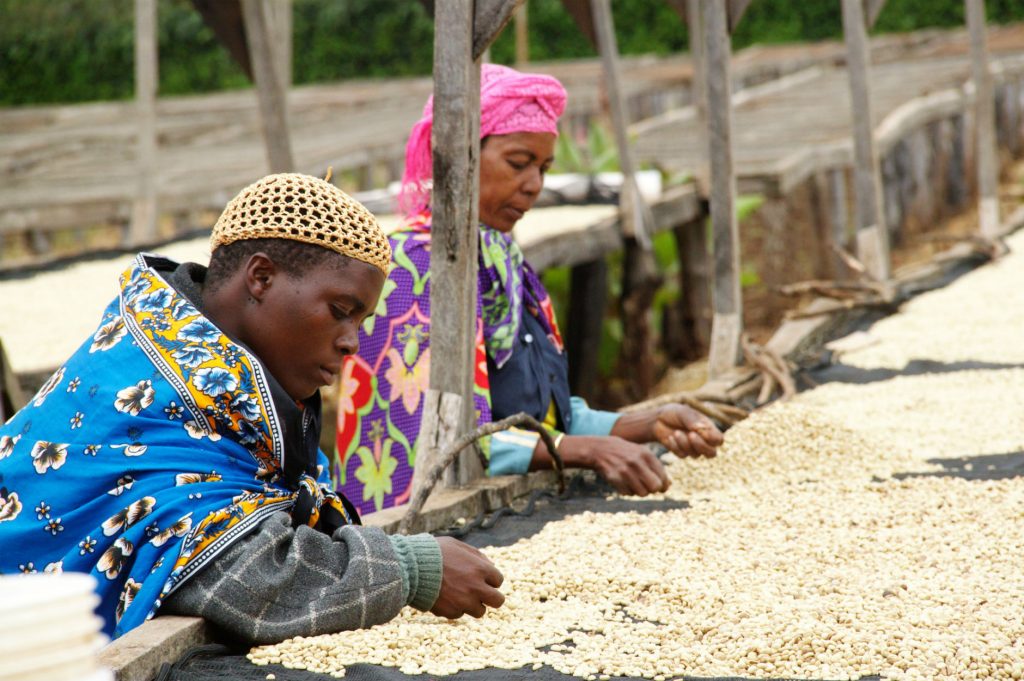
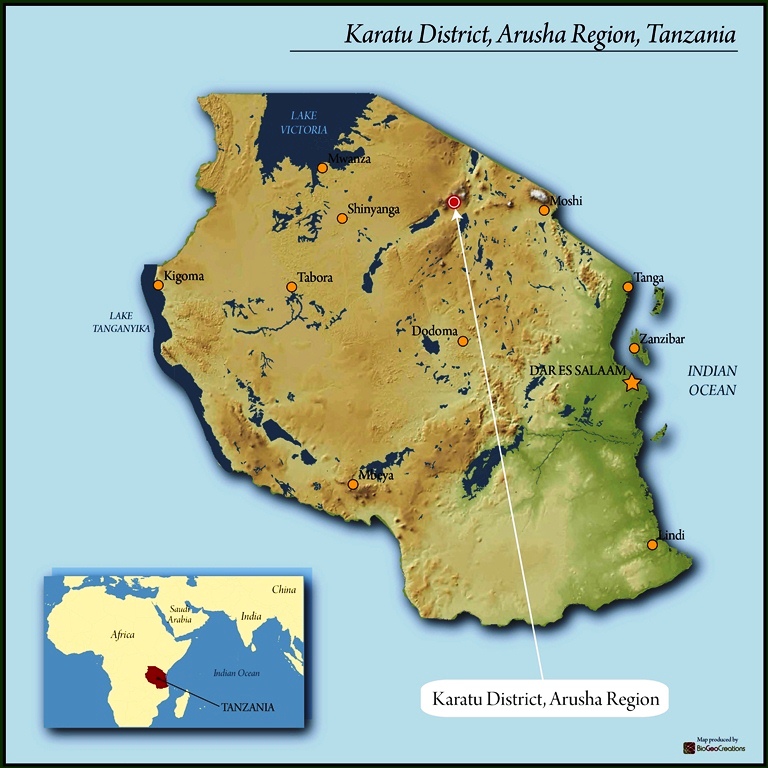
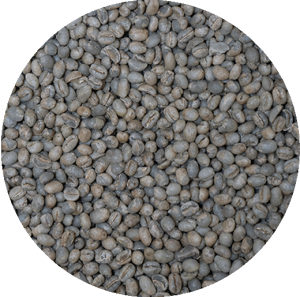
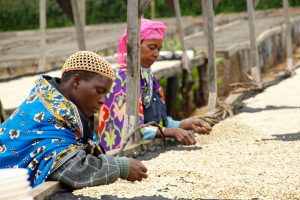
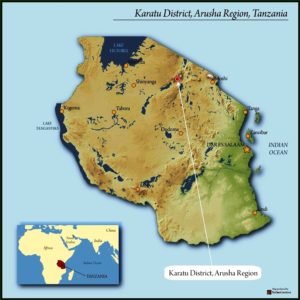

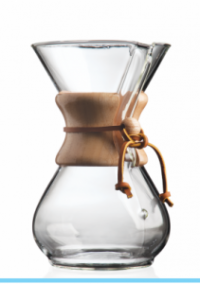
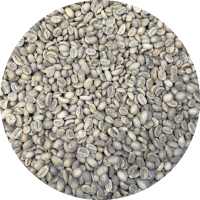
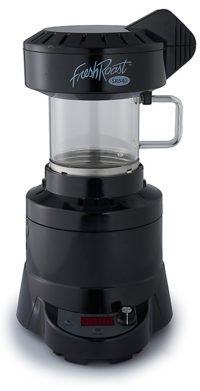

Reviews
There are no reviews yet.